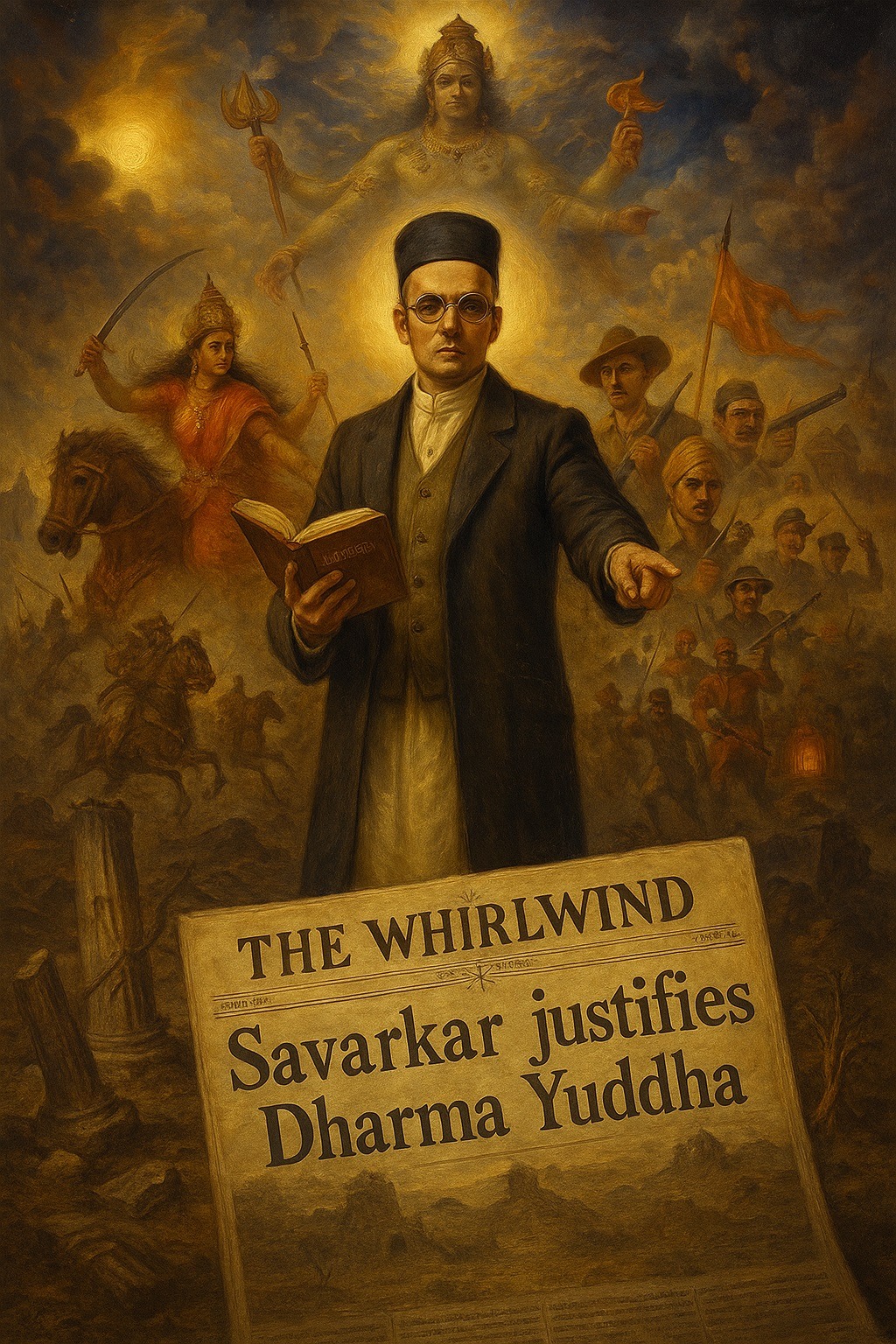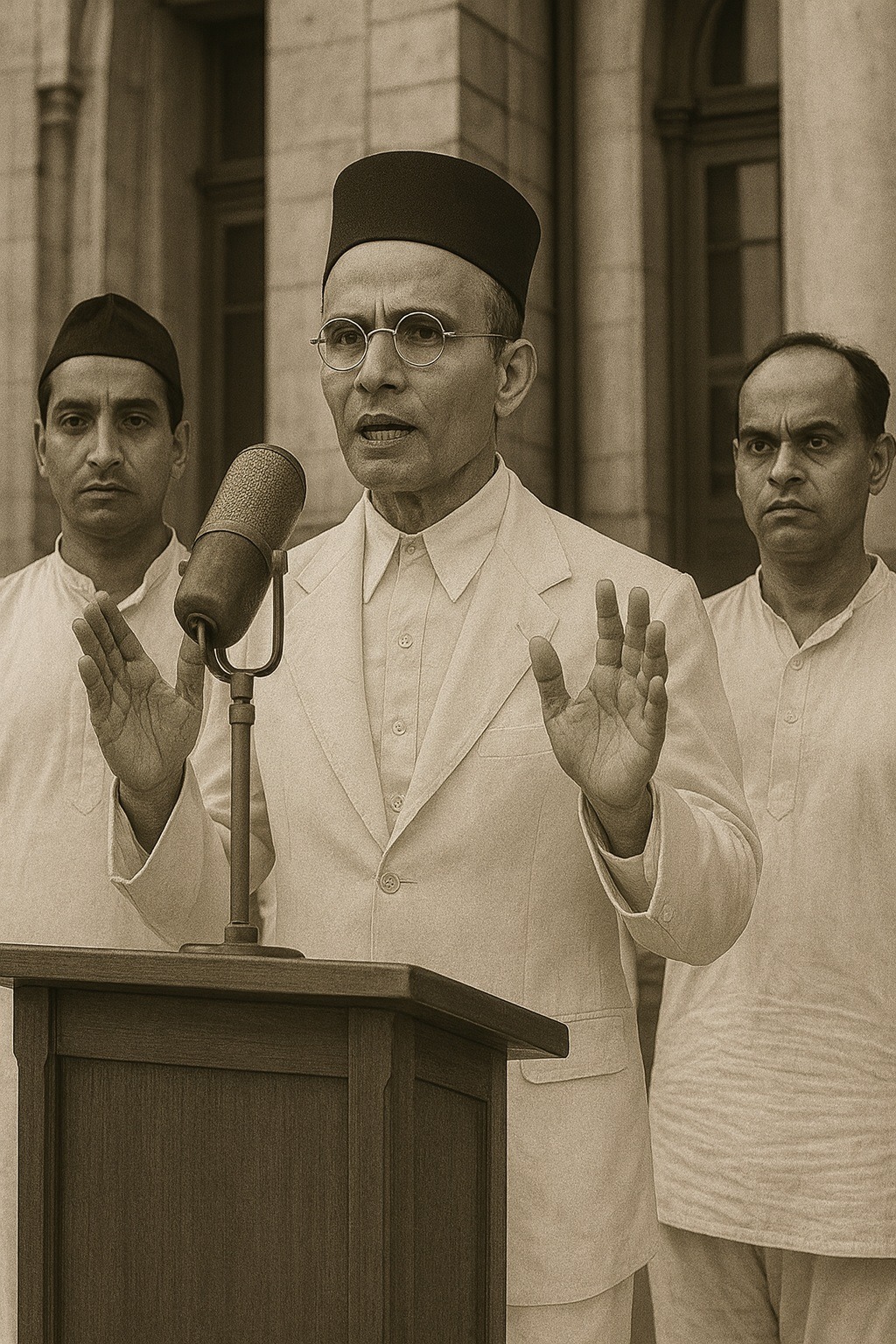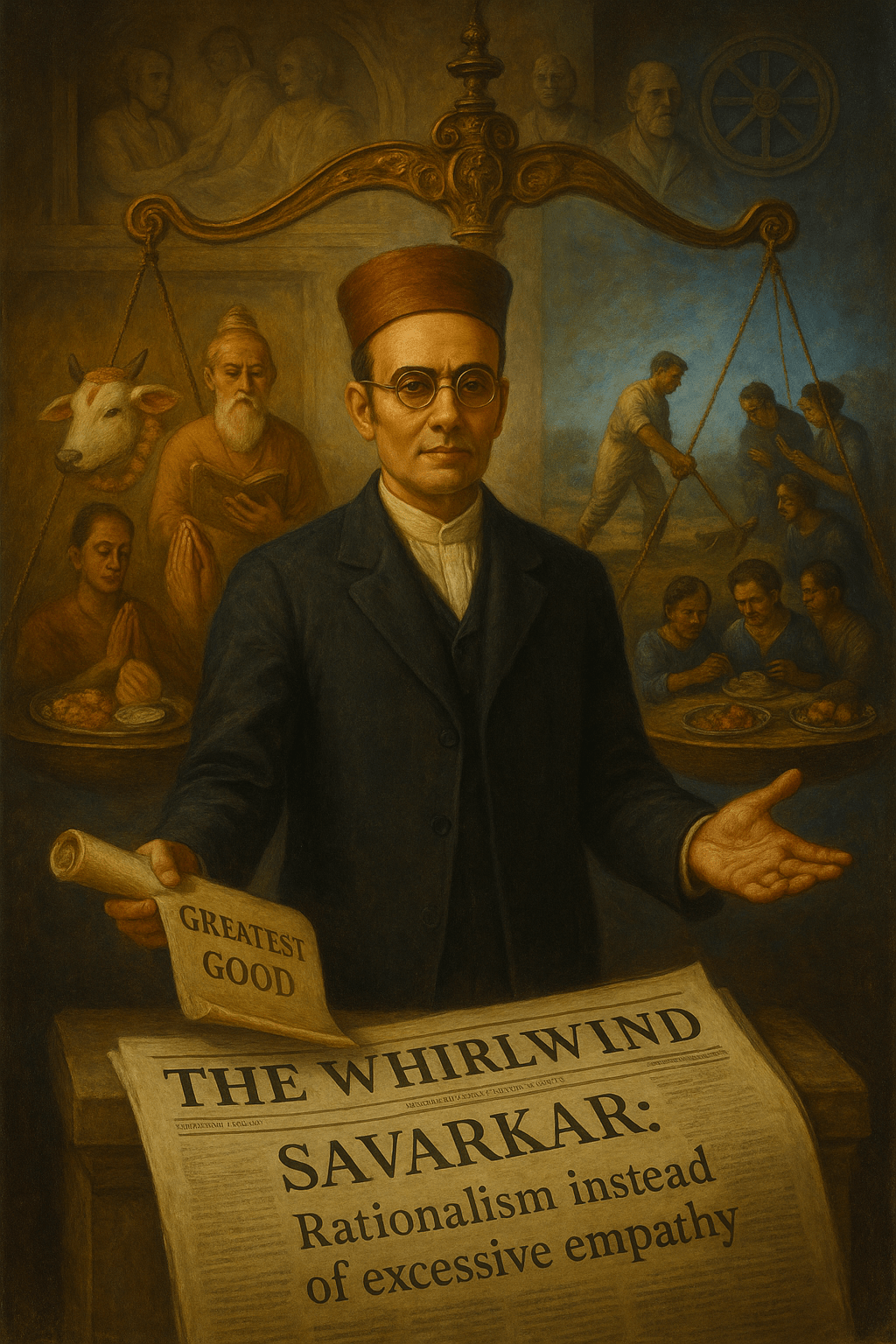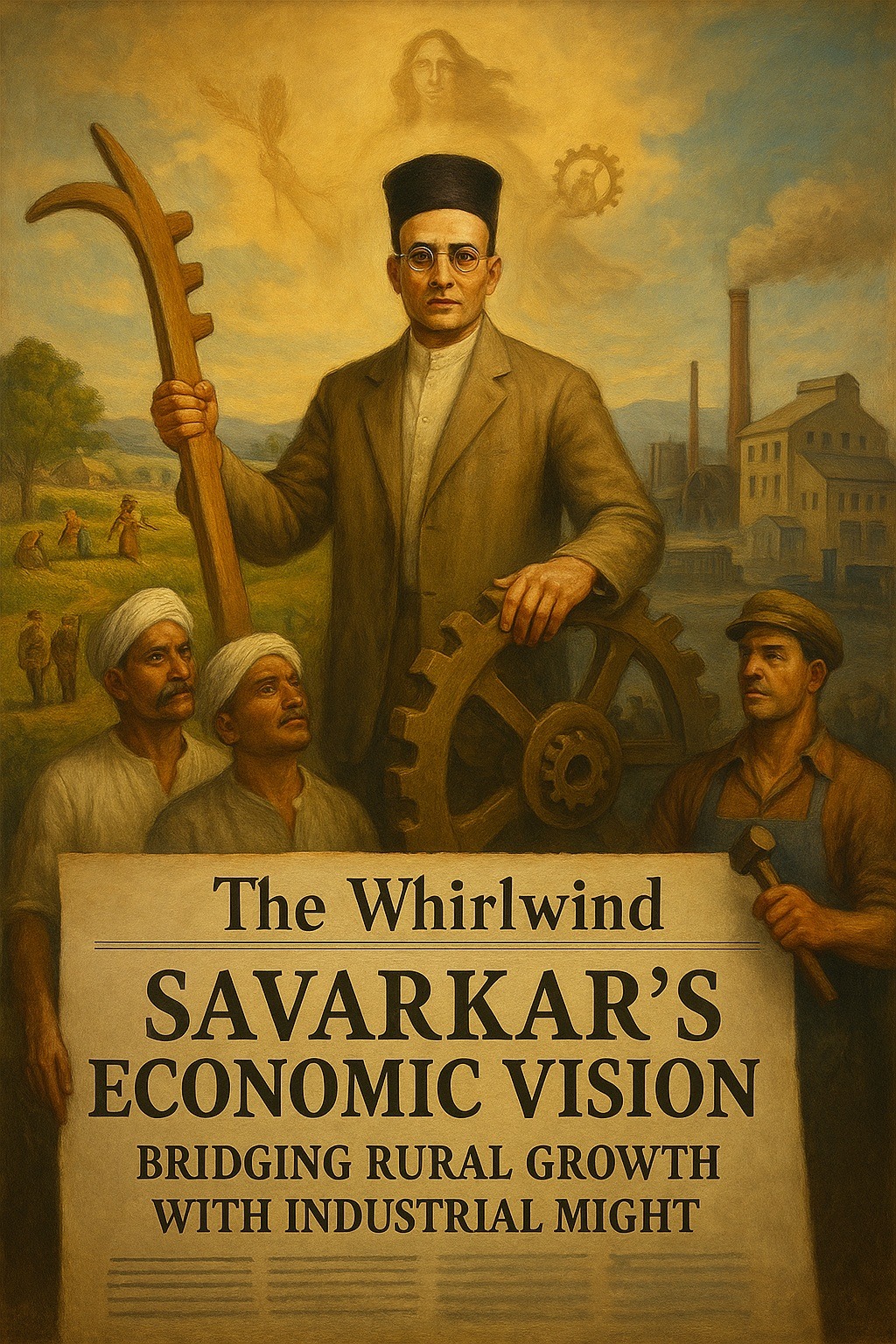Tag: GiuseppeMazzini
-
Political Dimension of Hindutva, Part 12 Introduction – Savarkar’s Radical Philosophy of Resistance Few statements in modern Indian political thought are as provocative as Vinayak Damodar (Veer) Savarkar’s declaration that relative non-violence is a virtue, absolute non-violence a crime. This concise yet explosive maxim captures the essence of Savarkar’s departure from the dominant ‘Gandhian ethos’…
-
Political Dimension of Hindutva, Part 11 The idea of a “holy war,” known as Dharma Yuddha, against the enemies of Hindutva – particularly non-Hindu occupiers of the land – was a fundamental principle shaping Vinayak Damodar (Veer) Savarkar from his early youth. He derived this concept from the Bhagavad Gita, which speaks of the divine…
-
Savarkar’s Philosophy & Worldview, Part 10, Savarkar’s Five Philosophical Dimensions (3/6) Vinayak Damodar (Veer) Savarkar is often remembered for his unflinching advocacy of nationalism, but was also a man of profound philosophical depth and his philosophy encompassed much more than a call for political independence. In this third installment of our exploration of Savarkar’s five…
-
Economic Dimension of Hindutva, Part 7; Savarkar’s Economic Principles (3/13) India’s economic foundation has long been rooted in agriculture, with rural communities playing a pivotal role in the nation’s progress. Vinayak Damodar (Veer) Savarkar, a visionary thinker and nationalist, recognized the indispensable contribution of the peasantry and the working class. He believed that empowering these…





